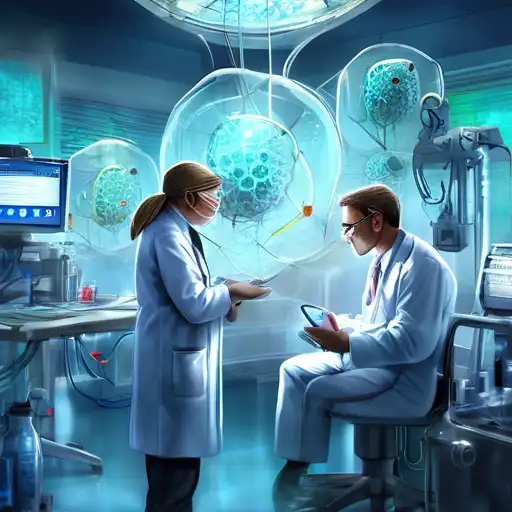Revolutionary Advances in Biotechnology Transforming Healthcare
In recent years, biotechnology has emerged as a beacon of hope, offering groundbreaking solutions to some of the most pressing health challenges. From gene editing to personalized medicine, these innovations are not just enhancing the quality of life but are also saving lives in ways previously unimaginable.
Gene Editing: A New Dawn for Genetic Disorders
One of the most talked-about breakthroughs in biotechnology is CRISPR-Cas9, a gene-editing technology that allows scientists to alter DNA sequences and modify gene function. This has opened up new possibilities for treating genetic disorders such as sickle cell anemia and cystic fibrosis. By correcting the genetic defects at their source, CRISPR offers a potential cure for diseases that were once deemed incurable.
Personalized Medicine: Tailoring Treatment to the Individual
Another significant advancement is the development of personalized medicine. This approach uses an individual's genetic profile to guide decisions regarding the prevention, diagnosis, and treatment of diseases. For example, in cancer treatment, personalized medicine has enabled doctors to select therapies that are most likely to be effective based on the genetic makeup of the patient's tumor, significantly improving outcomes.
Biopharmaceuticals: The Next Generation of Drugs
Biopharmaceuticals, or biologics, are medical drugs produced using biotechnology. These include vaccines, blood components, and recombinant therapeutic proteins. Unlike traditional drugs, biologics are derived from living organisms, making them more complex but also more effective in treating diseases like diabetes, rheumatoid arthritis, and multiple sclerosis.
Artificial Organs and Tissue Engineering
Biotechnology is also making strides in the field of artificial organs and tissue engineering. Scientists are now able to grow tissues and even whole organs in the lab, offering hope to patients awaiting transplants. This not only reduces the dependency on organ donors but also minimizes the risk of rejection, as these lab-grown organs can be made from the patient's own cells.
These biotechnology breakthroughs are just the tip of the iceberg. With ongoing research and development, the potential to save and improve lives is boundless. As we continue to explore the possibilities, it's clear that biotechnology will play a pivotal role in shaping the future of healthcare.
For more insights into how technology is revolutionizing healthcare, check out our articles on health innovation and medical breakthroughs.
